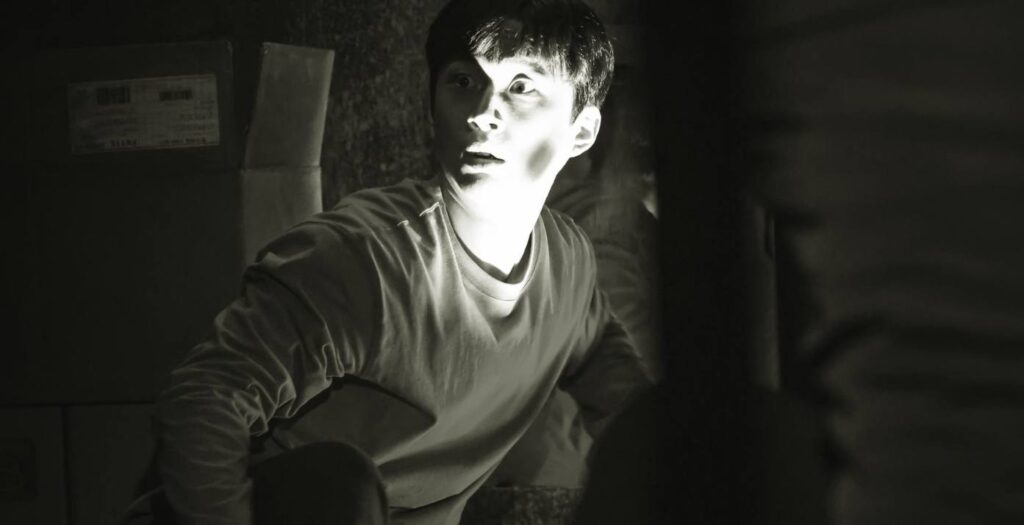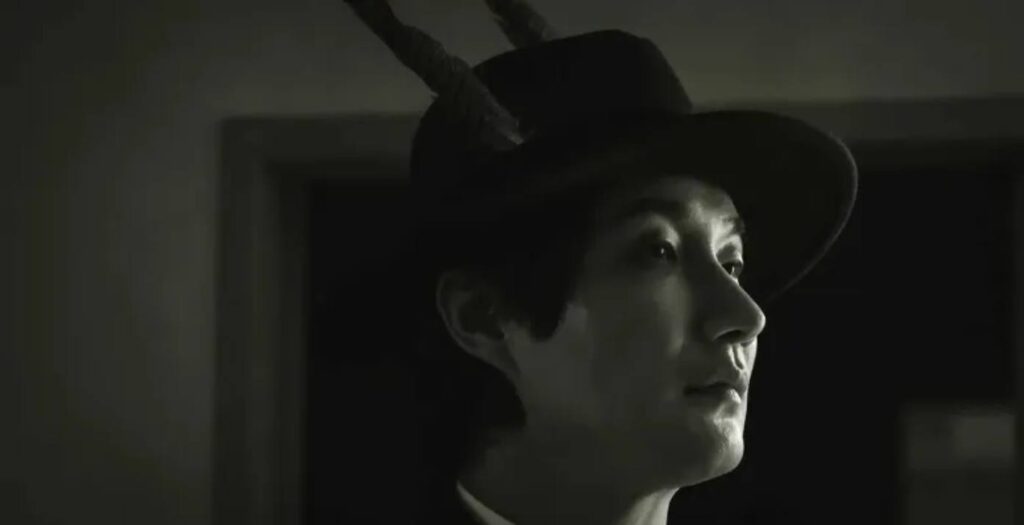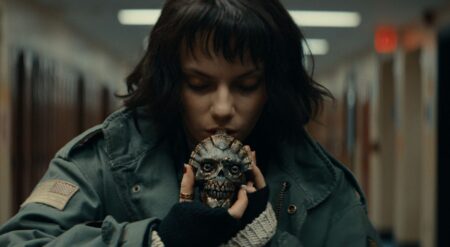Writer-director Yoon Eun-kyoung hones in on one of the scariest elements of life: secure housing. In a dreary, near-future version of Seoul, its citizens have become subject to rampant overpopulation, air pollution, and housing costs that have become completely untenable. Shin-dong has dedicated his life to try to find something better for himself. He’s allowed his life to be consumed by work and has isolated himself from friends and family in the process, all to earn a promotion that will honestly never come. But with the dream of moving up in the world and the transfer that comes with it to Sphere 2 (a utopia of sorts), he just keeps pushing forward.
For all of his hours in the office, though, Shin-dong can’t escape the threat of eviction. When his landlord (who is a literal child) threatens to put him on the street, Shin-dong resorts to his last choice: the world’s worst Craigslist ad. Called Wolwolse, the program allows tenants to rent out parts of their space to other people. Looking to rent out his living room, an eccentric couple arrives. The gentleman is tall, and dressed to the nines, speaking for his wife. But the couple don’t want to stay in the living room, they want the bathroom. What starts off as weird but tolerable quickly becomes worse when the couple turns to Wolwolse themselves and invites another tenant.
For his part, Kim Dae-gun as Shin-dong is the embodiment of anxiety. With no security in his home or his life, the colorless routine of going to work, going to the park, and going home is played for laughs at times but only before it comes back to the crushing fear of not being able to survive. At the start, there isn’t anything truly nefarious or dangerous happening.
Shin-dong evades eviction by letting the weird married couple stay. Their faces are eternally sharing creepy smiles, and they have a weird bathroom ritual, but they’re mostly harmless. Then, they use the loophole themselves, and the awkward behaviors become an endless nightmare. But what can Shin-dong do?

The core of the film revolves around Shin-dong’s lack of control, even in situations where he should have a solid grasp of circumstance and outcome. Time and time again, his hope is dashed, and he remains stuck. As his fight leaves him and he begins to cave into his circumstances, you can’t help but feel it all collapse. The Tenants is gripping in its hopelessness and the anxiety it breeds.
Lynchian in some ways, Kafkaesque in others, Yoon Eun-kyoung has her eye turned toward one of the most salient of societal problems right now in any country: working yourself to death only to still live in fear of losing your home. The confinement and claustrophobia that Shin-dong endures are crushing and director Yoon’s attention to detail and ability to force the audience to questions their own choices can’t be understated.
The Tenants is truly astounding. It’s a black-and-white absurdist nightmare; every time you think it can’t get worse for Shin-dong, it does. Taking the stance that a renter truly has no rights in this capitalist hellhole, The Tenants uses the surreal to capture the harsh realities that come with constantly grinding yourself down to the perfect employee hoping to excel in life. Shin-dong doesn’t live for himself, no matter how hard he tries.
The Tenants is clever at its core and director Yoon Eun-kyoung’s ability to craft tension and dread from the simple use of smiles, a child landlord, and the black-and-white cinematography is something to be applauded. Yoon understands the uncanny valley, the ease or burden that a contractual loophole creates, and how the weight of working just to survive traps you under. Smart and effortlessly surreal, The Tenants is art house personified.
The Tenants screened as a part of the Fantasia International Film Festival.
The Tenants
TL:DR
The Tenants is clever at its core and director Yoon Eun-kyoung’s ability to craft tension and dread from absurdity is something to be applauded.







